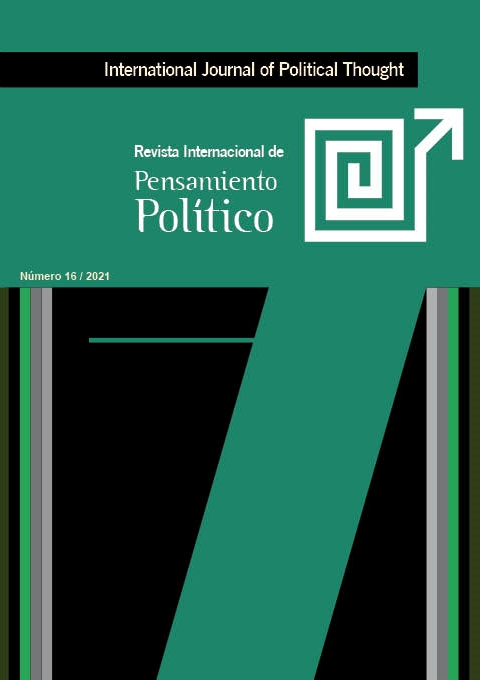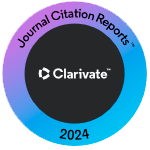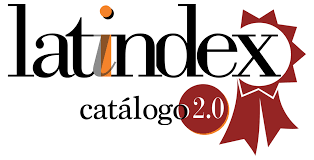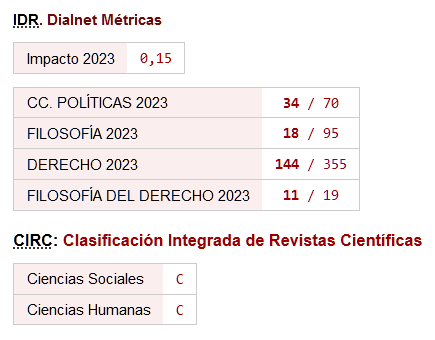Sperone Speroni y la defensa humanista de la lactancia materna
DOI:
https://doi.org/10.46661/revintpensampolit.6232Palabras clave:
Sperone Speroni, Discorso del lattare i figliuoli dalle madri, lactancia materna, familia, maternidad, HumanismoResumen
En el Discorso del lattare i figliuoli dalle madri (1542) el humanista italiano Sperone Speroni aborda un tema de interés en el Renacimiento: si las mujeres deben amamantar a sus hijos o dejarlos en manos de una ama de cría. Se parte del análisis de este texto y se confronta con los de otros humanistas del siglo XIV –Francesco de Barbaro y Leon Battista Alberti– y del XV –fundamentalmente Erasmo de Rotterdam, pero también Juan Luis Vives, Fray Luis de León, Pedro de Luján y Antonio de Guevara– para poder entender cómo la defensa de la lactancia materna es uno de los elementos clave del nuevo concepto de familia y de madre en la sociedad moderna.
Descargas
Citas
Alberti, L.B. (1960). "I libri della famiglia, Libro primo", en C. Grayson (ed.) Opere volgari, Bari, Laterza, 13-82.
Alberti, L.B. (1971). The Albertis of Florence: L. B. Alberti's Della Famiglia, Lewisburg, Bucknell University Press.
Ariès, Ph. (1962). Centuries of Childhood: A Social History of Family Life, New York, Knopf.
Barbaro, F. (1548). Prvdentissimi et gravi docvmenti circa la elettion della moglie. Trad. M. Alberto Lollio Ferrarese. Venecia, Gabriel Giolito de Ferrari.
Basile, A. (2016). "Nota sull'uso di 'dimidiatus' (Gell., Noct. XII 1.6), Emerita, revista de Lingüística y Filología Clásica, LXXXIV, 1, 171-176.
https://doi.org/10.3989/emerita.2016.09.1427
Bergmann, E. (1996). "Monstrous Maternity in Fray Antonio de Guevara's Relox de Principes", en E.H. Friedman y C. (eds.) Larson Brave New Words: Studies in Spanish Golden Age Literature, New Orleans, UP of the South, 39-49.
Bruni, F. (1967). "Sperone Speroni e l'Accademia degli Infiammati", Filologia e Letteratura, a.XIII, n.49, vol.I, 24-71.
Cammarosano, F. (1920). La vita e le opere di Sperone Speroni, Empoli, Tipografia R. Noccioli.
Correll, B. (1990). "Malleable Material, Models of Power: Woman in Erasmus 'Marriageable Group' and Civility in Boys", English Literary History, vol. 57, 241-62.
https://doi.org/10.2307/2873071
De Maio, R. (1988). Mujer y Renacimiento, Madrid, Mondadori.
Duby, G. y Perrot, M. (1992). Historia de las Mujeres. Volumen 3. Del Renacimiento a la Edad Moderna, Madrid, Taurus.
Erasmo de Rotterdam. (2005). "Puerperio", en A. Herrán y M. Santos (eds.) Coloquios familiares. Erasmo de Rotterdam.
Edición de Alonso Ruiz de Virués. Barcelona, Anthropos, 15-46.
Fano, A. (1909). Sperone Speroni (1500-1588): saggio sulla vita e sulle opere, Padua, Fratelli Drucker.
Fernández Valencia, A. (2011). "Cuerpo nutricio: iconografías de los discursos de lactación", en A. Fernández y M. López (eds.), Contar con el cuerpo. Construcciones de la identidad femenina, Madrid, Fundamentos, 167-205.
Fildes, V. (1986). Breast, Bottles, and Babies: A History of Infant Feeding, Oxford, Edinburgh UP.
Fildes, V. (1988). Wet-nursing: A History from Antiquity to the Present, Oxford, Basil Blackwell.
Fray Luis de León, (2006). La perfecta casada, Biblioteca virtual universal, Espasa Calpe, Madrid, https://biblioteca.org.ar/libros/131489.pdf
Freccero, C. (2019). "Economy, Woman, and Renaissance Discourse", en M. Migiel y J. Schiesari (eds.) Refiguring Woman: Perspectives on Gender and the Italian Renaissance, Ithaca, NY, Cornell University Press, 192-208.
https://doi.org/10.7591/9781501737220-010
Guarino, G. A. (1971). "Introduction", en The Albertis of Florence: L. B. Alberti's Della Famiglia, Lewisburg, Bucknell University Press, pp. 7-26.
Guevara, Antonio de. (1994). Relox de príncipes. Ed. Emilio Blanco. Madrid, ABL editor.
Hairston, J. L. (2013). "The Economics of Milk and Blood in Alberti's Libri della famiglia. Maternal versus Wet-Nursing", en J.G. Sperling (ed.) Medieval and Renaissance Lactations. Images, Rhetorics, Practices, Hampshire College, USA, Ashgate, 187-212.
https://doi.org/10.4324/9781315594743-11
Hass, L. (1998). The Renaissance Man and His Children: Childbirth and Early Childhood in Florence, 1300-1600, Nueva York, Palgrave Macmillan.
Herlihy, D. y Klapisch-Zuber, Ch. (1985). Tuscans and Their Families. A Study of the Florentine Catasto of 1427, New Haven, CT, Yale UP.
Jordan, C. (1990). Renaissance Feminism: Literary Texts and Political Models, Ithaca, NY, Cornell University Press.
https://doi.org/10.7591/9781501721847
Kelly, J. (1999). Did Women Have A Renaissance?, en L. Hutson (ed.) Feminism and Renaissance Studies, Oxford, University of Oxford, 21-47.
King, M.L. (1993). Mujeres renacentistas. La búsqueda de un espacio, Madrid, Alianza.
Klapisch-Zuber, Ch. (1985). "Blood Parents and Milk Parents: Wet Nursing in Florence, 1300-1530", en Ch. Klapisch-Zuber (ed.) Women, Family, and Ritual in Renaissance Italy, Chicago y Londres, The University of Chicago Press, 132-64.
Klapisch-Zuber, Ch. (1988). La famiglia e le donne nel Rinascimento a Firenze, Roma, Editori Laterza.
Kohl, G. y Witt, R.G. (1978). "On Wifely Duties", en B.G. Kohl. y G. Witt (eds.) The Earthly Republic: Italian Humanists on Government and Society, Philadelphia, University of Pennsylvania Press, 179-230.
Luján, P. de. (2010). Coloquios matrimoniales. Edición de Asunción e Asunción Rallo Gruss. Junta de Andalucía, Consejería de Cultura.
Matthews Grieco, S.F. (1991). "Breastfeeding, Wet Nursing and Infant Mortality in Europe (1400-1800)", en S.F. Matthews Grieco y C.A. Corsini Historical Perspectives on Breastfeeding, Florencia, UNICEF, 15-62.
McLaren, D. (1985). "Marital fertility and lactation 1570-1720", en M. Prior (ed.) Women in English society 1500-1800, Londres, Routledge, 22-53.
Meneghin, A. (2010). "Nursing Infants and Wet-Nurses in Fifteenth-Century Florence: Piero Puro di Francesco da Vicchio and his Wife, Santa di Betto da San Benedetto", Fifteenth Century, vol. 9, 179-195.
Miller, N. y Yavneh, N. (2000). (eds.) Maternal Measures: Figuring Caregiving in the EarlyModern Period, Burlington, VT, Ashgate.
Miller, N. y Yavneh, N. (2002). "Milking the Poor: Wet-nursing and the Sexual Economy of Early Modern Spain", en E. Lacarra (ed.) Sexuality, Love, and Marriage in Medieval and Early Renaissance Iberia, Nueva York, Routledge, 90-114.
Miles, M.R. (2008). The Secularization of the Breast (1350-1750), Londres, University of California.
Morant, I. (2002). Discursos de la vida buena. Matrimonio, mujer y sexualidad en la literatura humanista, Madrid, Cátedra.
Nadeau, C.A. (2001). "Blood Mother/Milk Mother: Breast-feeding, the Family, and the State in Antonio de Guevara's Relox de príncipes (Dial of Princes)", Hispanic Review, 69.2, 153-74.
https://doi.org/10.2307/3247036
Rivera, O. (2010). "Funciones de la madre en la ideología del género articulada en el coloquio 'Puerperio'", Symposium, 64:1, 18-32.
https://doi.org/10.1080/00397700903577894
Rivera, O. (2016). "La madre frente a la nodriza: Propiedades atribuidas a la leche materna en las obras humanistas", L'érudit franco-espagnol, volume 10, fall, 13-29.
Sánchez, T. (1996). La mujer sin identidad. Un ciclo vital de sumisión femenina durante el Renacimiento, Salamanca, Amarú.
Sandri, L. (1991). "Baliatico mercenario e abbandono dei bambini alle istituzioni assistenziali: un medesimo disagio sociale?", en M. G. Muzzarelli, P. Galetti y B. Andreolli (eds.) Donne e lavoro nell'Italia medievale, Turín, Rosemberg & Sellier, 93-104.
Scrivano, R. (1959). "Cultura e letteratura in Sperone Speroni", La Rassegna della Letteratura italiana, s. VIII, LXIII, 38-51.
Sperling, J.G. (ed.) (2013). Medieval and Renaissance Lactations: Images, Rhetorics, Farnham, Ashgate.
Speroni, S. (1740). "Discorso del lattare i figliuoli dalle madri", en Opere di M. Sperone Speroni degli Alvarotti tratte da' mss. Originali. Tomo secondo, Venecia, Domenico Occhi, 477-486.
Vianello, V. (1989). "Sperone Speroni: opere, stile e tradizione. Un ventennio di studi (1968-1988)", Quaderni Veneti, n.9, 203-222.
Vives, J.L. (1940). Instrucción de la mujer cristiana, Buenos Aires, Espasa-Calpe Argentina.
Zambetti, A. (1920). Della vita e delle opere di Sperone Speroni, Lecco, Arti Grafiche Lecchesi.
Descargas
Publicado
Cómo citar
Número
Sección
Licencia
Derechos de autor 2022 Milagro Martín Clavijo

Esta obra está bajo una licencia internacional Creative Commons Atribución-NoComercial-CompartirIgual 4.0.
Política de acceso abierto
Se permite el acceso libre y abierto de cualquier interesado a todos los contenidos de los números de la revista, sin costo alguno, pudiendo imprimir y trasladar todos los artículos, con la única condición de precisar la fuente y la autoría.
La revista: a) no cobra a las autorías costes por el procesamiento de los artículos ni por el envío de los mismos, b) mantiene el copyright para los autores sin restricciones, c) facilita a los autores conservar sus derechos de publicación sin limitaciones.
La Revista Internacional de Pensamiento Político es una obra original del Laboratorio de Ideas y Prácticas Políticas de la Universidad Pablo de Olavide. Todos los artículos incluidos en la Revista son obra original de sus respectivas autorías. Esta Revista se ofrece libremente a la comunidad científica y académica sin coste alguno y libera los contenidos de acuerdo a la licencia "Reconocimiento-NoComercial-CompartirIgual 4.0 CC BY-NC-SA" del proyecto Creative Commons dispuesta en la siguiente url: https://creativecommons.org/licenses/by-nc-sa/4.0/legalcode
Si deseas traducir o compilar alguno de los artículos aquí disponibles, por favor, ponte en contacto













